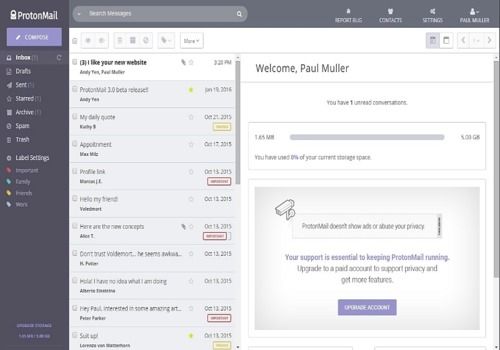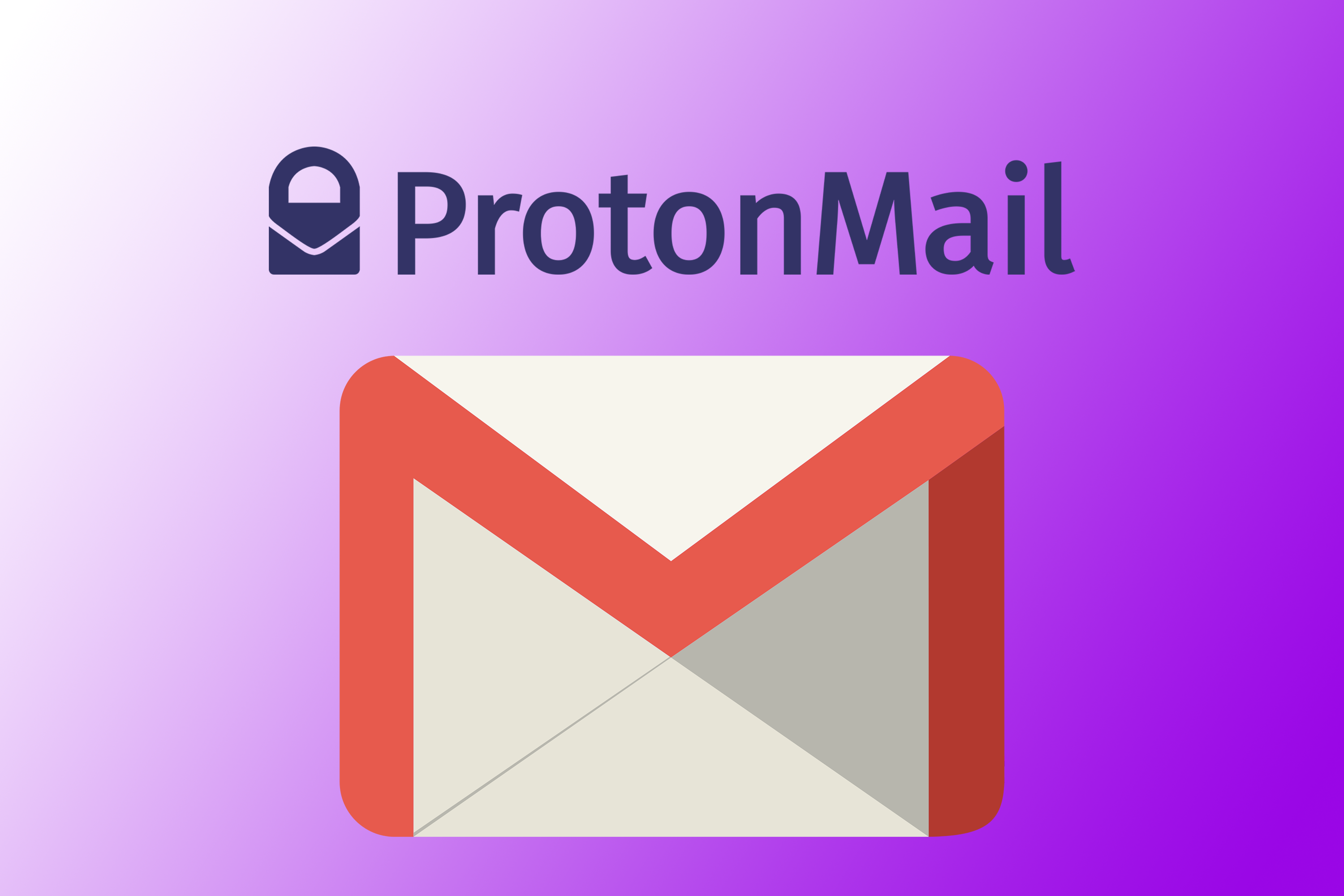
Add a strong password to protect your account, and an optional recovery email. Paying users can enable the short-form domain pm.me. is the default domain for your account, though a Swiss version, protonmail.ch, is also an option. As with any webmail service, this name must be unique, but given the smaller pool of users you may be able to snag a name like billgates rather than billgates_123456. While Gmail and its ilk boast some security features, ProtonMail goes way beyond them. It's also an open-source project, meaning that experts have an opportunity to look over and vet its security algorithms. Note, too, that ProtonMail is based in Switzerland, which has stricter privacy policies than the US. It's Surprisingly Easy to Be More Secure Online When you communicate with another ProtonMail user, the connection is encrypted from end to end. It stores your messages in zero-access encrypted form, meaning that the company can't give your messages to a government entity even if subpoenaed, and a sneaky employee can't weasel into your private message stash. Before it securely sends your messages, it actively encrypts them using public key cryptography.

ProtonMail naturally uses HTTPS and SSL, but it doesn't stop there. Google has a policy for when and how it releases your email to government entities, clearly indicating that it can do so if compelled. And despite claims that Gmail no longer reads your email, it does read your messages sufficiently to do things like automatically put airline flight notifications in your calendar. However, it's easy to accidentally give mail-reading permission to third-party apps. When it sends your messages, it uses the standard Secure Sockets Layer (SSL) to protect your data in transit. You may remember hearing that Gmail always uses a secure HTTPS connection.




 0 kommentar(er)
0 kommentar(er)
